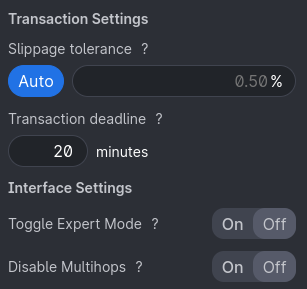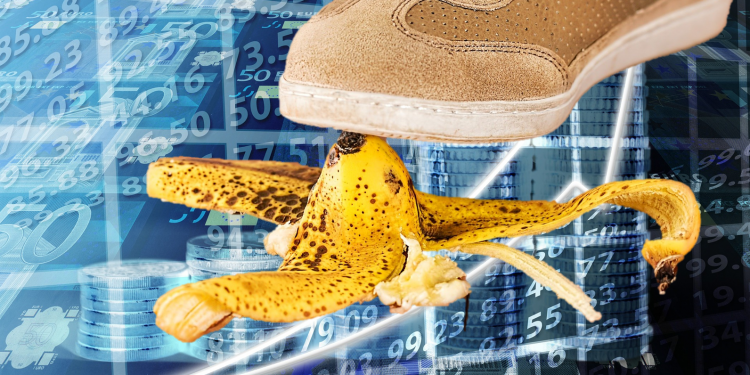If you ever used Uniswap before, you might have heard of slippage. It is a phenomenon that every trader should be aware of.
When trading volatile assets like cryptocurrencies, prices are liable to change during the processing time of a transaction. Imagine that you sign a contract that you will pay for the full value of a house. But before you execute the purchase of the house, it goes up in value and you have to pay more than you were expecting. This can happen when trading with crypto.
Why setting slippage is important
The slippage is the difference between the expected price of a trade and the actual price at which the trade is executed. Before executing a trade, it is good to know what slippage you’re using. For tokens like Ethereum and Bitcoin which are less volatile, there likely will be a negligible price difference for your expected and executed trade. However, with more volatile assets that have lower market caps, the price can change quickly in a matter of minutes. So when buying alt coins, it is beneficial to know how to use slippage. Don’t worry – it’s super simple. You can see in the picture below that you can manually enter the slippage tolerance.

So, if you set the slippage tolerance to 1%, any transaction that is more than 1% of the price you are confirmed, it will be declined. When purchasing highly volatile assets, it’s always good to double check your slippage tolerance and know for sure what you’re doing. Traders with small amounts of capital however have much lower risks. People buying large amounts of a certain token require more liquidity and therefore need to be more liberal with there slippage.
Final thoughts
Its good to know these basic details when trading on DEXs to make your trading experience better. If you enjoyed reading this article, then check out a similar topic in our article, Uniswap Launches V3: Why DEXs Will Explode.










